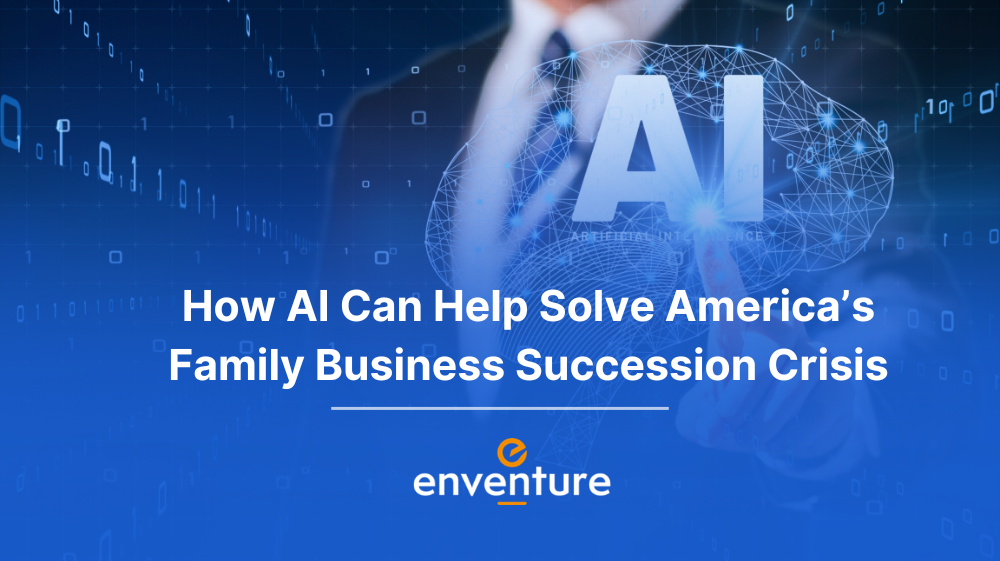Discover how AI can help solve America's family business succession crisis by enabling strategic planning, preserving legacy, and driving innovation for future growth.

America’s family-owned businesses are approaching a pivotal moment—one that could determine whether these enterprises flourish into future generations or fade away. Succession planning, the process of passing leadership from one generation to the next, has become one of the most pressing challenges for these companies. Alarmingly, only 15% of family-owned businesses in the U.S. successfully transition into the third generation, as highlighted by recent research from the National Bureau of Economic Research.
Despite their critical role in the American economy—generating roughly 57% of the nation’s GDP and employing about 63% of the workforce, according to Family Enterprise USA—many family businesses still delay succession planning. The reasons are often rooted in emotional complexities and the fear of disrupting family harmony.
But in a digital-first world, the stakes of inaction are higher than ever. As family firms strive to balance their traditional identity with modern business demands, artificial intelligence (AI) is emerging as a powerful ally in shaping a sustainable and strategic future.
Ankit Shrivastava, Founder and Managing Partner of Enventure, a U.S.-India private equity firm that collaborates with family-run businesses, stresses the need for intentional planning around succession, innovation, and technology adoption. “To successfully advance while preserving heritage, family businesses need to clearly define their objectives around succession, digital transformation, and innovation,” he explains.
Enventure’s research reveals that nearly 57–67% of family-owned businesses in the U.S. are unclear about their long-term strategy—especially when it comes to succession and adapting to digital change. This uncertainty not only leads to operational inefficiencies but can also erode the trust and unity within the family.
AI-driven analytics offers a practical solution to this challenge. These technologies can assess potential successors objectively, identify areas for business growth, and improve decision-making by removing emotional bias from critical conversations. AI tools can also document institutional knowledge digitally, ensuring that valuable insights and legacy expertise are preserved through leadership transitions.
Moreover, digital platforms powered by AI offer real-time analysis of customer behavior and market trends, helping family businesses stay agile and competitive. But Shrivastava cautions that technology alone is not enough—success lies in integrating digital tools within a thoughtful strategy that respects the company’s values and family culture.
By combining traditional wisdom with modern innovation, family-owned businesses can strengthen their legacies and future-proof their operations. The key lies in proactive planning and embracing digital transformation—not as a threat, but as a bridge to long-term sustainability.
As America confronts a growing succession planning crisis, now is the time for family businesses to act decisively. With the strategic use of AI, they can transform this challenge into an opportunity for growth, resilience, and generational success.
Source: Adapted from “AI Could Be the Key to Solving America’s Family Business Succession Crisis” by News Items, published April 26, 2025.
Bold Moves,
Brighter Futures
Let's team up and make a difference.
Subscribe to our newsletter
Enventure is an exit-driven fund with high-yield opportunities in the healthcare, space, and green tech sectors across the US and India.
Mail Us
3103 Kewanee Ln,
Naperville, IL, 60564
Copyright © 2025 Enventure, all rights reserved.
